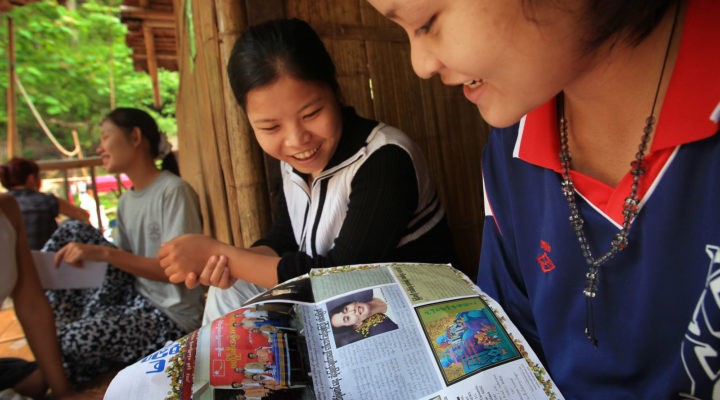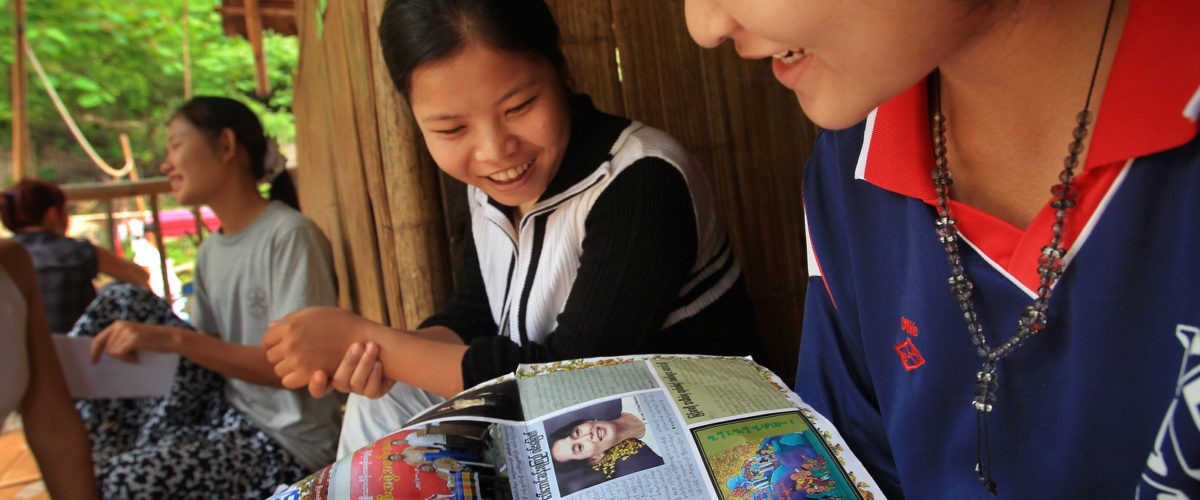Civil rights groups roundly blasted President Donald Trump’s travel ban expansion Thursday, because four African nations were added.
A less vocal but equally concerned group is refugees from Myanmar – still called Burma by many from there – and those who have spent years ministering to them in the United States.
“The great concern with the travel ban is that it also functions as an immigration ban,” said Annette Ellard, who with Steve Clark serves as Cooperative Baptist Fellowship field personnel to the Burmese community resettled in Louisville, Kentucky.
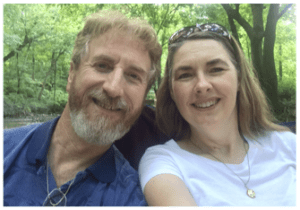
Steve Clark and Annette Ellard (Photo/CBF)
Trump introduced a ban three years ago on most travel from Iran, Libya, North Korea, Syria, Venezuela and Yemen. Beginning Feb. 22, travel restrictions were expanded to cover Eritrea, Kyrgyzstan, Nigeria, Sudan, Tanzania and Myanmar.
American civil rights activists decried the inclusion of additional African nations as inherently racist and anti-Muslim.
Ellard and other ministers worried the addition of Myanmar may prevent the reuniting of families, scare refugees from visiting their homeland and keep much-needed pastors and other clergy from meeting with their followers in the U.S.
Most Americans don’t realize that many Myanmar refugees resettled in the United States are Christians, she said, and many of those Burmese Christians are Baptists.
‘Eyeballing them as terrorists’
While the Karen (pronounced “ka-rin”) ethnic group has developed ministers from within, other groups depend on visiting pastors from overseas, said Sterling Severns, the senior pastor at The Tabernacle Baptist Church in Richmond, Virginia.

Sterling Severns (Photo/Facebook)
“This may cut their pastoral pipeline,” he said.
Severns’ congregation for more than a decade has hosted and worshiped with a community of Myanmar refugees legally resettled in the area by the federal government.
The ban also is expected to make it more difficult, if not impossible, for refugees to temporarily host their relatives from overseas.
“It affects family members because it means loved ones can’t come visit,” he said.
The expanded ban may cause other kinds of damage, he said.
“What message does it send to people who have been here a decade and assimilated to know people are eyeballing them as terrorists?”
‘We have to wait and see’
It’s also difficult to know if exceptions to the ban can be trusted.

John Sungchang Park (Photo/CBTS)
“Although the new visa restrictions have been placed on Myanmar, they do not affect the non-immigrant visas as far as I know,” John Sungchang Park, director of the Doctor of Ministry program at Central Baptist Theological Seminary in Shawnee, Kansas, said via email.
That would be good news for students traveling to the seminary for its collaborative D.Min. program with the Myanmar Institute of Theology.
Park said the program has 40 students with 11 scheduled to graduate in May. Another 60 already are alumni.
“So, my understanding is that we should be able to continue to get Myanmar students, although we’ll have to wait and see how the new measures are going to affect new students,” he said.
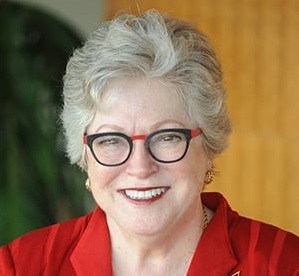
Molly Marshall
CBTS President Molly Marshall added that some kind of impact is expected.
“We do believe that this ban will affect how many visas will be issued for students to study with us in the U.S.,” Marshall said via email.
“While members of the Burma Diaspora – those who are already here – will be free to enter our programs, we do anticipate some reconfiguring of our collaborative D.Min. going forward.”
Ban may impede mission work
Meanwhile, a congregation in Florida said the inclusion of Myanmar in the ban has thrown a wrench into plans to send missionaries to that country.
“We have been talking and praying about sending mission teams of American and Karen people to reestablish the Karen church in Burma,” said Gary Webber, senior pastor of Southside Baptist Church in Jacksonville.

Gary Webber (Photo/SSBC)
The Karen are one of several ethnic groups traditionally persecuted in Myanmar who have resettled in the U.S.
“But now the ability to do that could be limited,” he said of the overseas visits.
The church has spent years helping refugees settle into American society and to flourish in their Baptist faith, Webber said.
“They feel very comfortable and very safe here,” he said.
But Webber said it’s his congregation that gained the most from their work with refugees.
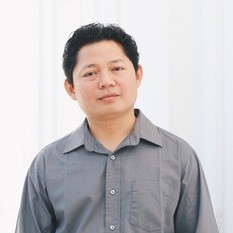
Thu Lai Mu (Photo/SSBC)
“There is a reciprocal nature to this kind of ministry where the person who is supposedly the one helping is in fact the one being helped and served,” he said.
At the moment, the inclusion of Myanmar on the travel ban isn’t causing a lot of disturbance among the Burmese congregation associated with Southside Baptist, said Thu Lai Mu, the Karen pastor.
Christians were oppressed by the Myanmar government for generations and others were raised in refugee camps in Thailand, he said. Many have no desire to go back, regardless of their visa or citizenship status.
Potential impact regardless of status
The refugees are a boost to the congregations they join, said Jason Crosby, the minister of preaching, pastoral care and administration at Crescent Hill Baptist Church in Louisville, Kentucky.
“They are more Baptist probably than other Baptists I know,” he said.
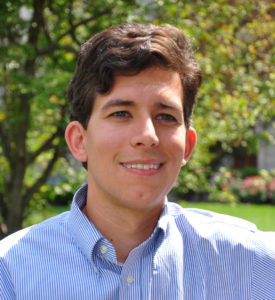
Jason Crosby
That church, too, has been home to a refugee population from Myanmar. They have since formed their own congregation as many have become citizens and purchased homes.
“We have taken hundreds to CBF (General Assembly) and to Passport camps,” he said.
But Crosby has been concerned recently to learn that members of the Karen congregations are overseas, with their ability to return in doubt.
He’s redoubled his efforts to warn them about the ban.
“I fear not all our Karen folks have quite wrapped their head around this yet,” he said.
While student visas apparently will still be granted, travel for the purpose of marriage is not, Crosby said.
And that’s one of the saddest impacts of the expanded ban, Ellard said.
“It means folks in those positions would not be able, under this new rule, to bring their spouses to join them,” she said.
Ellard said she’s cautioning all the refugees she works with to be careful about leaving the states.
“I anticipate that people will be affected even if they are permanent residents or citizens of the United States,” she said.

